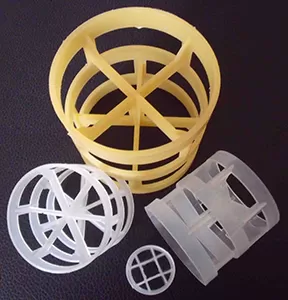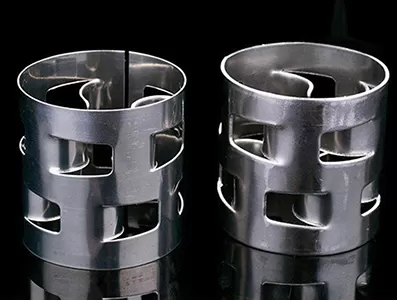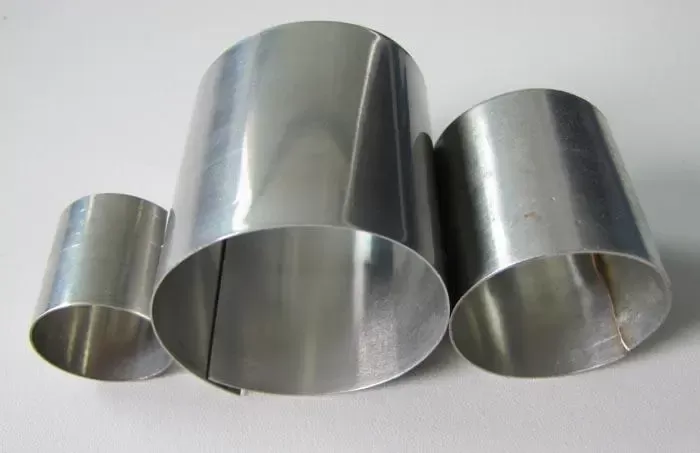The differences between pall rings and Raschig rings as two classic random packing materials

pall rings and Raschig rings, as two classic random packing materials, have significant differences in structural design, mass transfer performance, and application scenarios. The specific differences are as follows:
1. Structural design differences
Raschig rings are the earliest circular packing materials, with a solid circular structure without any openings or deformation designs. The ring walls are closed and smooth, and gas and liquid can only flow between the rings. This simple structure limits the distribution of fluid within the packing layer and easily forms local dead zones.
pall rings are an improved type of packing material based on Raschig rings. The core change is that the ring walls have 4-6 rectangular window holes, and the blades at the window holes bend towards the center of the ring and interlock with each other. This design breaks the closed nature of the ring walls, allowing fluid to flow freely inside and outside the ring and forming a continuous flow channel.
2. Mass transfer performance differences

Contact area and efficiency: The closed structure of Raschig rings makes the gas-liquid contact mainly rely on the outer surface of the ring, resulting in a small effective contact area and low mass transfer efficiency. pall rings, due to the design of window holes and inward-bent blades, allow gas and liquid to simultaneously contact the inner, outer sides of the ring and the blade surface. The specific surface area is 30%-50% higher than that of the same规格 Raschig rings, significantly improving the mass transfer efficiency, and under the same separation task, the required packing layer height can be reduced by 20%-40%.
Fluid resistance and flux: The voidage of Raschig rings is relatively low (generally 70%-80%), and gas passage is difficult due to high resistance, resulting in liquid flooding and limited operating gas velocity. pall rings have a voidage of up to 90% and smoother fluid flow paths, reducing resistance by 20%-30% compared to Raschig rings, allowing for higher gas-liquid loads and a 30% increase in equipment processing capacity (flux) under the same separation task.

Operational flexibility: Raschig rings are sensitive to fluctuations in gas and liquid flow rates and, once the load deviates from the design value, the mass transfer efficiency will significantly decrease, resulting in a narrow operational flexibility. pall rings, due to more uniform fluid distribution, can maintain stable efficiency within a ±20% load fluctuation range, providing wider operational flexibility.
3. Application scenarios differences
Raschig rings are currently only used in some simple separation scenarios with low efficiency requirements and cost priority, such as small pressure vessels for absorption or pre-treatment processes with low separation accuracy requirements.
pall rings, with their efficient mass transfer and low resistance, are widely used in high-precision separation scenarios, such as distillation towers in petrochemicals, waste gas purification towers in environmental protection industries, and solvent recovery towers in the pharmaceutical industry. Especially when dealing with large flow rates, high viscosity, or foaming systems, pall rings have more prominent advantages.
4. Economic cost differences
The manufacturing cost of Raschig rings is lower, with less raw material consumption, and the initial purchase cost is 10%-20% lower than that of pall rings. From a full life cycle perspective, pall rings have higher efficiency, lower energy consumption (reducing power consumption by 20%-30%), longer replacement cycle (with a lifespan 1.5-2 times that of Raschig rings), and lower overall operating costs. They are particularly suitable for large industrial installations.

